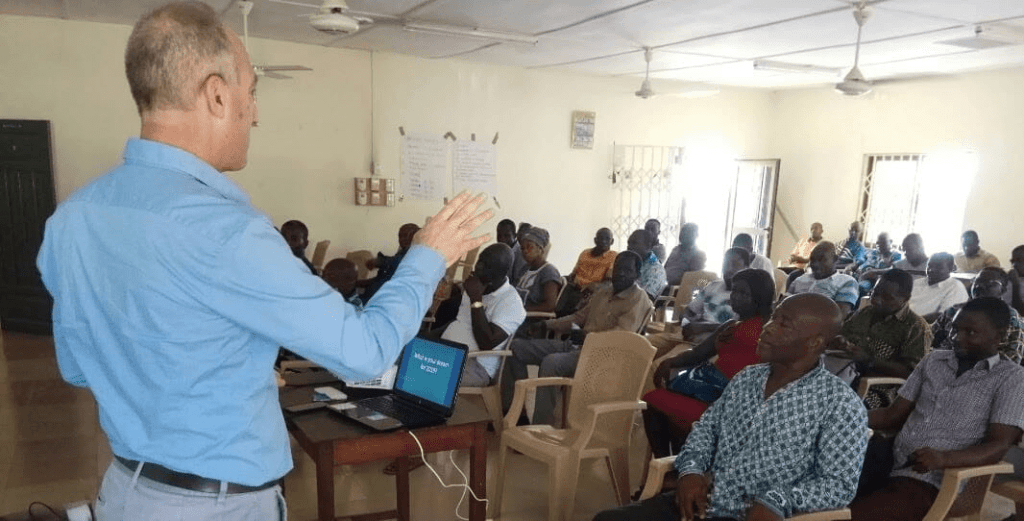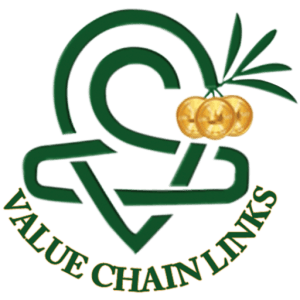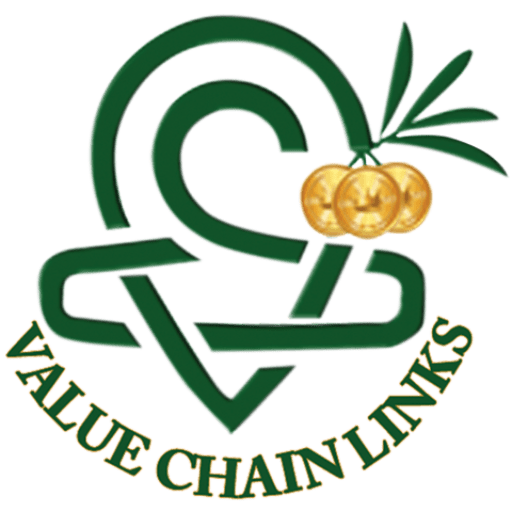IF YOU WANT A LEGACY; BE YOURSELF, BE DIFFERENT, BE THE CHANGE

“Be part of the 3% that dares to change the world.”
For many years my good friend, Dr. Shaul Ben-Yehuda, was in charge of the Neve-Ya’ar R&D experimental “varieties plot,”; the next generation of advanced varieties, composed mainly of peaches and nectarines.
But, there was a significant problem, despite repeated sprays, 50% (or more) of the fruits were always infested by fruit flies.
This hindered the research and the ability to select the outstanding variety that would be recommended to farmers to plant.
CHOOSE YOUR BENCHMARK CAREFULLY
In 2000, Dr. Ben-Yehuda contacted me and asked me to experiment with Biofeed’s new zero-spray technology to control fruit flies (still in its infancy).
Together we installed the units and monitored fruit infestation a couple of months later when harvest arrived.
We were both super happy and surprised to see the infestation has dropped by 90% to as little as 5%.
Dr. Ben-Yehuda’s reaction was excitement mixed with overjoy. He congratulated me and said how amazing it is to achieve a 90% infestation reduction without ever spraying.
I looked at him and said, “It’s certainly beautiful, but the infestation is higher than I expect (i.e., higher than 1%), 400 units/hectare is far too many, and 2 to 4 weeks between services is too often. This isn’t sufficient to bring the change I am dreaming of. I must improve all the metrics.”
Eighteen years later, in 2018, we had an average of 0.03% fruit infestation, 10 units/hectare working continuously for an entire season (over 5 months), against Africa and Asia’s Top Fruit Flies Pests and under all climate conditions.
It was only then that I finally said to myself, “The technology, solution, and result meet my expectations.“
Yes, it took 18 (extra) years to reach my expectations and change everything we know and think of the control of fruit flies and other flying pests. Yet, I wouldn’t change a thing.
This story demonstrates the importance of setting goals, benchmarks, and personal ambitions.
 Dr. Ben-Yehuda was satisfied with the 2000 results because he compared the results achieved to the industry standard of conventional/organic sprays. Dr. Ben-Yehuda focused on the relative infestation results.
Dr. Ben-Yehuda was satisfied with the 2000 results because he compared the results achieved to the industry standard of conventional/organic sprays. Dr. Ben-Yehuda focused on the relative infestation results.
When you do that, you conclude that – less infestation is better than more, and no sprays are better than sprays. Hence, you are happy with yourself.
Do you know other cases, companies, and experts making such relative comparisons?
 Looking at the same data and reality, I wasn’t happy with the result because I focused on the farmers’ point of view.
Looking at the same data and reality, I wasn’t happy with the result because I focused on the farmers’ point of view.
It was clear to me that farmers are costumed to spraying. To stop their addiction to sprays, I would have to do better.
To change the mental dependence on sprays, I would need to make every characteristic of the new technology FAR BETTER AND EASY TO USE.
I NEVER compared myself to the industry standard, for it was nowhere near my expectations.
Industry-standard measures the number of sprays, and % infestation, while I measured metrics of farmers’ livelihood, sustainability, and the health of humans and the environment.
The industry standard focused on killing pests, versus me, on people, livelihood, health, and the environment.
Do you see the difference?
Can you see why in 2000, 22 years ago, it was difficult to explain that though the results received were good, they were not sufficiently good?
Furthermore, doing this in Israel, where overall sprays and crop protection are regarded as “effective,” is an even more significant challenge.
INSIDE THE BOX
When we compare our results to “the industry standard,” we are left in the box, thinking, doing, and getting the results like 97% of the companies, entrepreneurs, leaders, scientists, farmers, investors, and the public.
When you think within the norm, you are “normal,” and hence you will receive “normal” results within the variation of the norm.
Comparison with industry-standard is suitable for generating “normal” results, e.g., sales and moderate business growth, but is not proper for extraordinary results.
Whatever I do, I am looking for “extraordinary results.” Hence, “the industry standard” is never a relevant comparison measure to me.
“Industry standard” keeps people within certain mental boundaries and pushes them to mediocracy.
For example, see the global challenges in the Table below and the “solutions” proposed today, using “Industry-standard” that solves nothing but a temporary remedy to a chronic problem.

We can’t solve the above and other global challenges (i.e., SDGs) with incremental innovation.
We got to the place where we are now because most people think the same, while what we need is change through extraordinary innovation.
What we want and need is a significant and quick leap, one we can do only by thinking differently, outside the box.
For the past thirty years, I have carried in my heart the mantra, “If I do what others do, I will end up with the results others get. So, I must not do as others; I must do things differently.“
This line of thinking led me to realize that the most practical solution is to start by “dreaming the solution” and only then look for ways to bridge the gap to reality.
Using this technique, I developed, among others:
(i) a novel pest control technology, the first in 50 years, the GCFR,
(ii) a state-of-the-art fruit fly control protocol, the FFCTZ,
(iii) a breakthrough line of products, the Freedome,
(iv) a groundbreaking concept for pest control solutions development.
We have to come up with disruptive innovation, for we have wasted too much time on slow incremental innovation leading us nowhere.
It is a tragedy that most people and families in poverty and hunger are hardworking farmers.
Will “more of the same” solutions help them? Based on the past 100 years of experience, no.
The answer to poverty is not another technological gadget, though “technology” is needed to create prosperity.
The answer to poverty is not due to lack of money, though money is needed to create prosperity.
The answer is not “more training,” though “training” is required to create prosperity.
These have already been tried, replicated, improved, amplified… and ultimately failed.
People say, “Experience brings wisdom.” I tried and experienced the above and failed like everybody else.
Technology, knowledge, money, talent, and wisdom are not a goal per se but means and tools to help others improve their livelihood and lives while increasing “the global happiness level.”
STRATEGIC DECISIONS
I choose to focus my professional activity on things that matter to me, i.e., improving the livelihood of smallholders and “unprofessional” farmers, a group that makes up 97% of all farmers.
And.… while doing so, we also ensure that we produce our food with 90% to 100% fewer sprays and chemicals. That is to keep our environment safe and sound and our food healthy and free of hazards.
To this end, I founded Dream Valley, a complete end-to-end agro-regenerative marketplace Package for non-developed economies.
Dream Valley’s dual platform, digital and physical, helps farmers produce a higher yield of better quality AND THEN market it to premium markets to fetch premium prices, so subsequently, they can increase their income.
And… Dream Valley is not an NGO; it is a commercial company.
Why?
Because I believe farmers, like all people, want and need to improve their economic situation from a position of respect. Without mutual respect, there is no true freedom.
NGOs’ finances are unaffected by farmers’ financial results.
In contrast, I designed the Dream Valley business model in a way that it will benefit ONLY if farmers’ income/profit improves and vice versa.
We chose to align our interests with those of the farmers, to work in harmony.
And we sure want more investors to chip in, which they would do only if they see a commercial company doing well.
FROM GREAT TO “BEST”
The most successful companies in the world, like, Google, Amazon, Facebook, IKEA, Apple, Tesla, etc., share something in common.
They became successful not due to a unique technology only they have, but thanks to founder/s and management with an extraordinary business model and the ability to execute it.
The IBMA conference invites extraordinary founders, investors, decision-makers, and stakeholders in the agro sector or related to it to attend the conference, share their experiences, learn from others, think together, and develop the most critical tool MISSING in the non-developed economies – dedicated novel business models.
Dream Valley has already developed such a novel dedicated business model.
It is said in Judaism that “whoever saves one life saves an entire world” (Sanhedrin 4:5).
Therefore, I invite you to join Dream Valley and me on a journey that will not take us to the Moon and Mars but will help save millions of “worlds.”
There are 2.2 billion people who live amongst us in poverty and hunger; imagine how many “worlds” you/we can save. Those worlds/people will one day reach more stars than we imagine.
Dream Valley’s journey will bring economic prosperity to millions.
Dream Valley will improve the environment by keeping our farms free of pesticides and sprays, improve our health by producing healthier food, and increase tree planting to mitigate the negative actions of others and the greenhouse effect.
Nevertheless, all this is not instead-but in addition to business success for investors and uneven happiness that money cannot buy.
| TAKEAWAYS» CURRENT INDUSTRY STANDARD solutions to humanity’s acute problems are ineffective.» THERE IS A NEED for a different way of thinking outside the box to solve global challenges.» AGRICULTURE AND FARMERS are “a problem” that, if we act smart, can be turned into “the solution” to global challenges.» AGRO SECTOR solutions must be on a business basis, generating excellent profits for all involved. |
| If you enjoyed the article please share it with friends & colleagues. » SUBSCRIBE « *** Mental and Economic Freedom Are Interconnected. *** |

